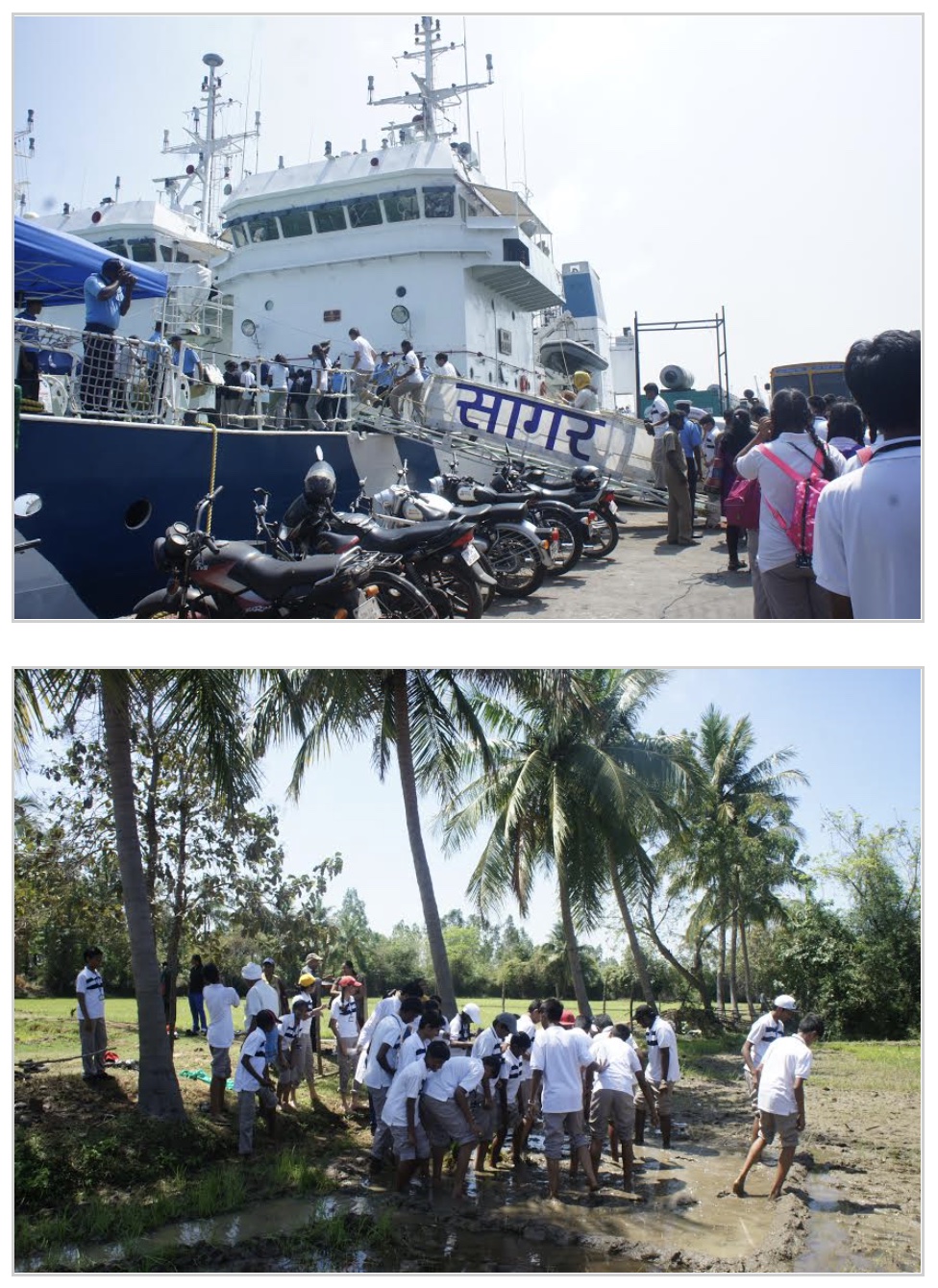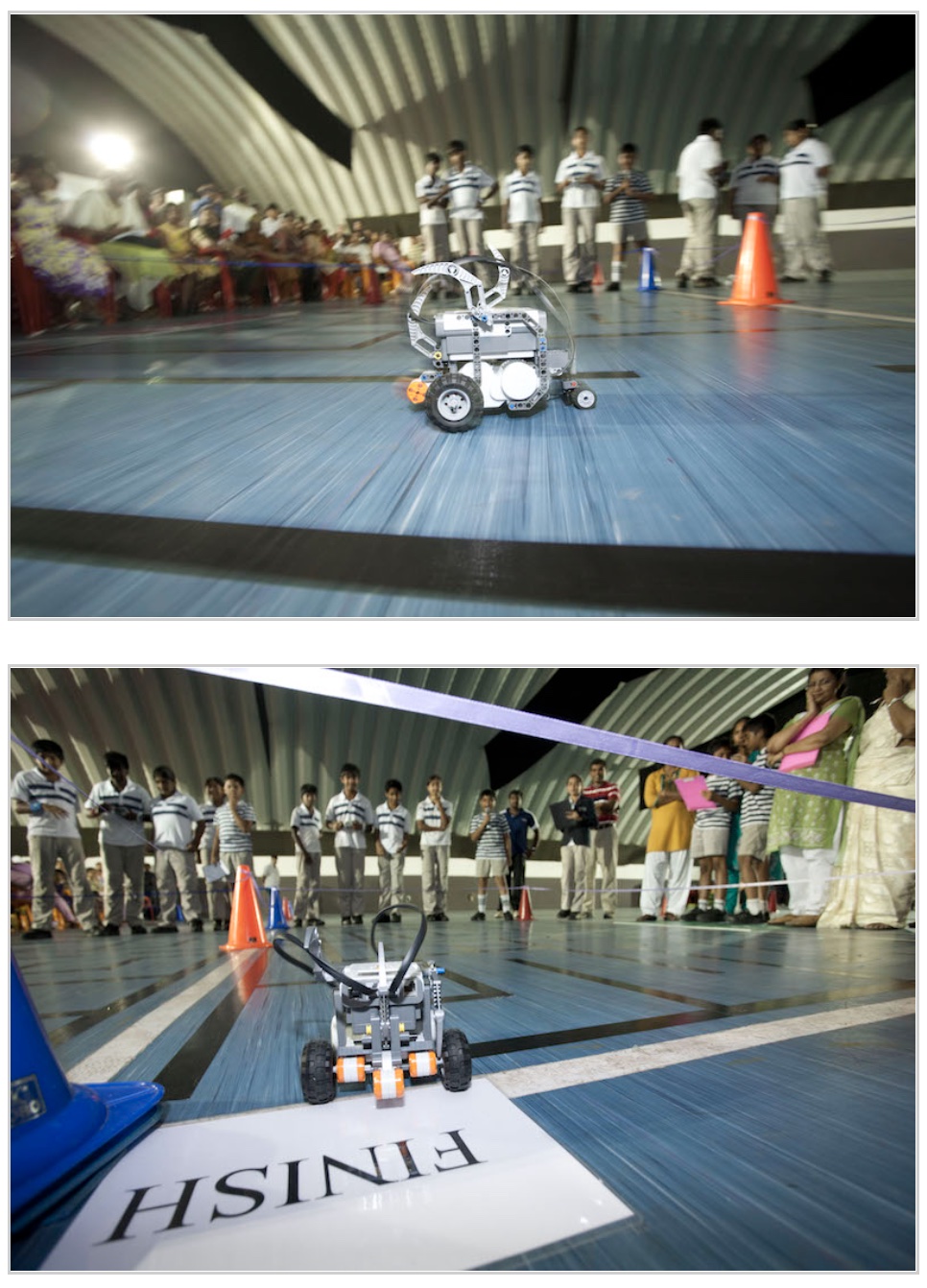Cambridge IGCSE is the world’s most popular international qualification for 14 to 16 year olds. It is recognised by leading universities and employers worldwide, and is an international passport to progression and success. Cambridge IGCSE helps improve performance by developing skills in creative thinking, enquiry and problem solving. It is the perfect springboard to advanced study. The subject offered are to ensure the breadth of learning and the future requirements are met for any course selected at Higher Secondary level.
Cambridge IGCSE develops learner knowledge, understanding and skills in:
- Subject content
- Applying knowledge and understanding to new as well as unfamiliar situations
- Intellectual enquiry
- Flexibility and responsiveness to change
- Working and communicating in English
- Influencing outcomes
- Cultural awareness.
Cambridge IGCSE has wide recognition from higher education institutions and employers around the world as evidence of academic ability. It is also recognized by CBSE, ICSE and other Indian School boards as a Class X Board Qualification.
Subjects Offered: 1. English, 2. Hindi/French, 3. Mathematics, 4. Physics, 5. Chemistry, 6. Biology, 7. Information & Communication Technology 8. Economics 9. Physical Education
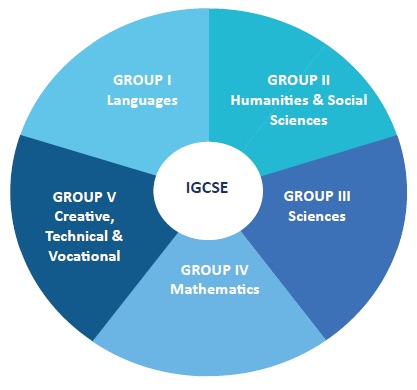
Cambridge IGCSE First Language English is designed for learners whose mother tongue is English. The curriculum promotes an enquiry-based approach to learning to develop thinking skills and encourage intellectual engagement. The course allows learners to:
- Develop the ability to communicate clearly, accurately and effectively when speaking and writing
- Learn how to use a wide range of vocabulary, and the correct grammar, spelling and punctuation
- Develop a personal style and an awareness of the audience being addressed.
Learners are also encouraged to read widely, both for their own enjoyment and to further their awareness of the ways in which English can be used. Cambridge IGCSE First Language English also develops more general analysis and communication skills such as synthesis, inference, and the ability to order facts and present opinions effectively.
Candidates who are awarded grades A* to C in Cambridge IGCSE First Language English are well prepared to follow courses leading to higher secondary curriculum in Indian as well as international schools.
The aims of the syllabus are the same for all candidates. The aims are set out below and describe the educational purposes of a course in First Language English for the Cambridge IGCSE examination. The aims are to:
- Enable candidates to understand and respond to what they hear, read and experience
- Enable candidates to communicate accurately, appropriately, confidently and effectively
- Encourage candidates to enjoy and appreciate a variety of language
- Complement candidates’ ability to work with information and ideas in other areas of study, for example, by developing skills of analysis, synthesis and the drawing of inferences
- Promote candidates’ personal development and an understanding of themselves and others.

The second language syllabus is designed for learners who are learning the basics of the language. The aim is to develop an ability to use the language effectively for purposes of practical communication. The course is based on the linked language skills of listening, reading, speaking and writing, and these are built on as learners progress through their studies.
The syllabus also aims to offer insights into the culture and civilisation of countries where the language is spoken, thus encouraging positive attitudes towards language learning and towards speakers of foreign languages.
Through their studies, learners gain an understanding of how to use Hindi effectively in the type of situations, and Hindi-speaking environments, they will encounter in their daily lives. The aim is to achieve a level of practical communication ideal for everyday use, which can also form the basis for further, more in-depth language study.
Cambridge foreign language IGCSEs are accepted by universities and employers as proof of linguistic ability and understanding. The course encourages learners to develop lifelong skills, including:
- The ability to use a foreign language as a means of practical communication
- Insight into the culture and civilisation of countries where the language is spoken
- A positive attitude towards language learning, towards the speakers of other languages, and towards other cultures and civilisations
- Techniques which can be applied to other areas of learning, such as analysis and memory skills
- A sound foundation for progression to employment or further study
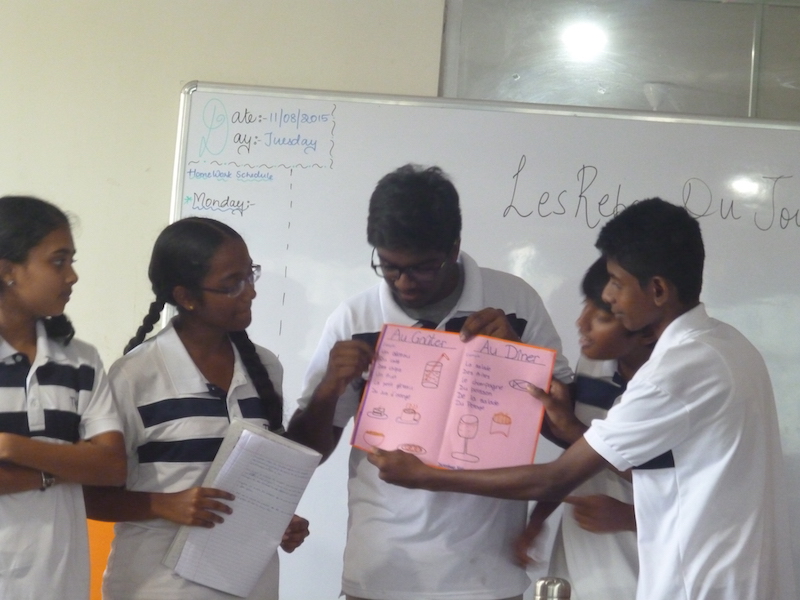
Cambridge IGCSE Sciences gives learners the opportunity to study Biology, Chemistry and Physics, each covered in separate syllabus sections. Learners gain an understanding of the basic principles of each subject through a mix of theoretical and practical studies, while also developing an understanding of the scientific skills essential for further study.
They learn how science is studied and practised, and become aware that the results of scientific research can have both good and bad effects on individuals, communities and the environment.
Focusing on the individual sciences, the syllabus aims to,
- Understand the technological world in which they live, and
- Take an informed interest in science and scientific developments
Students learn about the basic principles of each subject through a mix of theoretical and practical studies, while also developing an understanding of the scientific skills essential for further study.
This syllabus has been developed to,
- Establish the relevance of sciences in our daily life
- Encourage the consideration of science within an international context and
- Be relevant to the differing backgrounds and experiences of students throughout the world
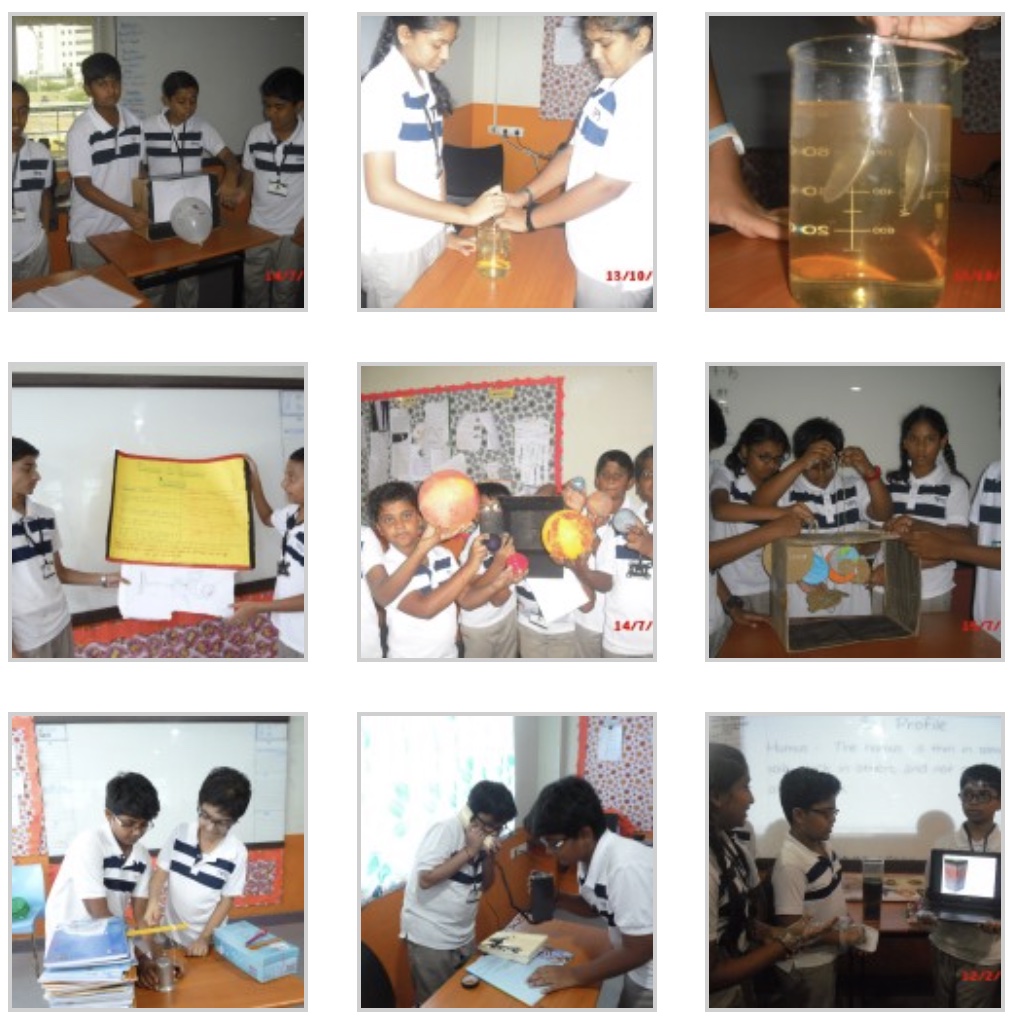
Mathematics
An essential subject for all learners, Cambridge IGCSE Mathematics encourages the development of mathematical knowledge as a key life skill, and as a basis for more advanced study. The syllabus aims to build learners’ confidence by helping them develop a feel for numbers, patterns and relationships, and places a strong emphasis on solving problems and presenting and interpreting results. Learners also gain an understanding of how to communicate and reason using mathematical concepts.
Students may follow either the Core curriculum or the Extended curriculum. Students aiming for grades A* to C should follow the Extended curriculum. All candidates will study the following topics in IGCSE Mathematics:
- Number
- Algebra and graphs
- Geometry
- Mensuration
- Co-ordinate geometry
- Trigonometry
- Matrices and transformations
- Probability
- Statistics
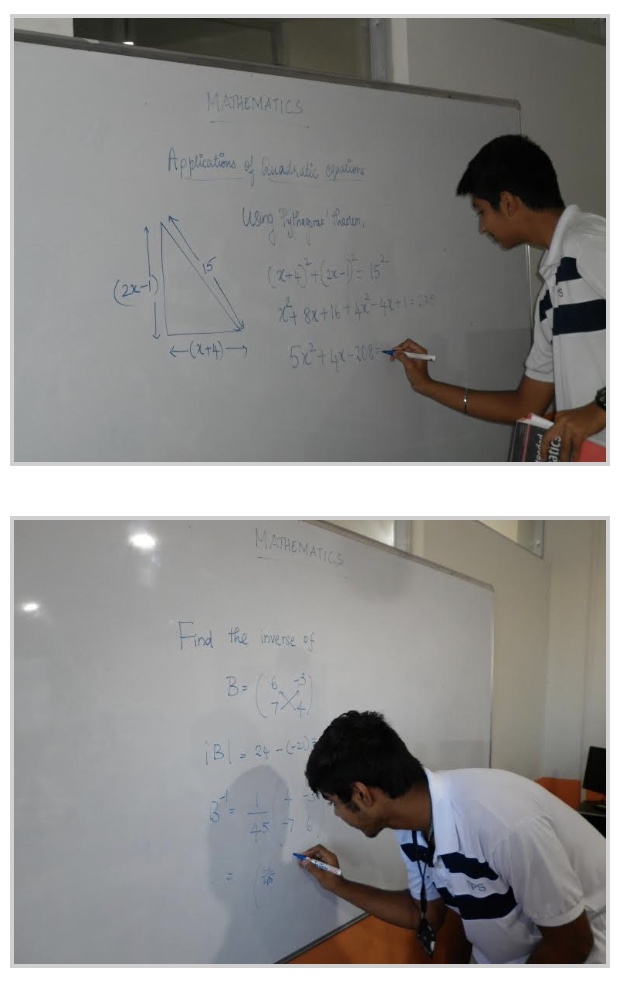
Creative Tech. & Vocational
At TIPS we offer the following two subjects at IGCSE level to give opportunities to the students with interest in other than science subjects.
Economics
The Cambridge IGCSE Economics syllabus develops an understanding of economic terminology and principles and of basic economic theory.
Learners study:
- The interrelated economies of developed and developing nations .
- Handle simple data and undertake economic analysis,
- Evaluate information and discriminate between facts
- Value judgements in economic issues.
The syllabus also encourages a better understanding as consumers, producers or citizens of the local, national and international community.
ICT
The Information Communication Technology syllabus encourages learners to develop lifelong skills, which will be useful to them in their work across the curriculum and prepare them for future employment.
They will develop:
- Understanding of the implications of technology in society,
- Economic and ethical uses
- Analysis, design, implement, test and evaluate ICT systems, ensuring that they are fit for purpose
The syllabus combines theoretical and practical studies focusing on the ability to use common software applications to solve problems, including word processors, spreadsheets, databases, interactive presentation software, web browsers and website design.
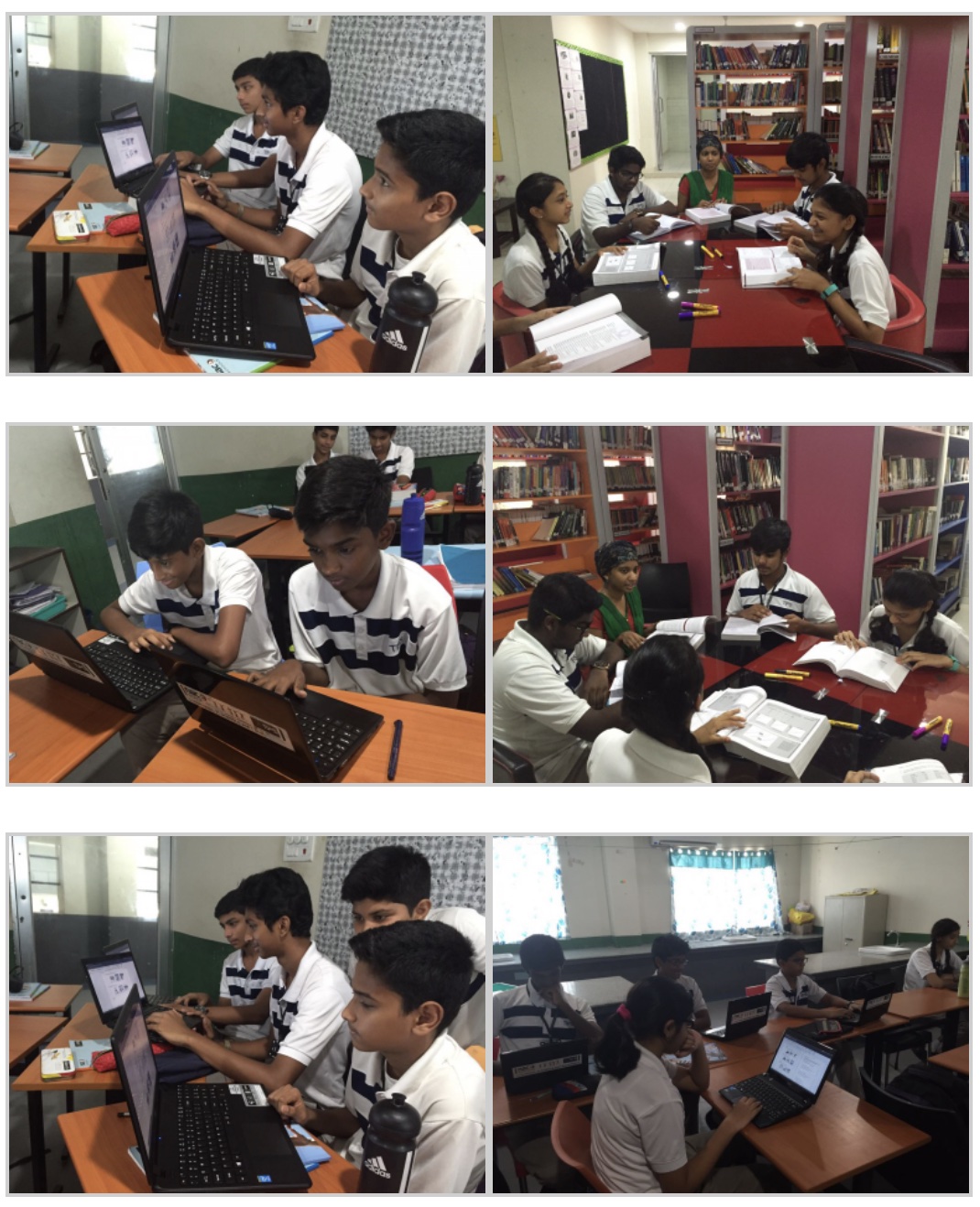
Arts
In the middle years the arts course aims to encourage a personal response by stimulating imagination, sensitivity, conceptual thinking, powers of observation and analytical ability. Learners gain confidence and enthusiasm as they develop technical skills in two and three dimensional form and composition, and are able to identify and solve problems in visual and tactile forms. They also learn how to develop ideas from initial attempts to final solutions. An ideal foundation for further study, our team also develops a greater awareness of the role played by the various art forms in society and in history, broadening cultural horizons and individual experience.
The arts component of the curriculum also provides opportunities for students to:
- Develop proficiency as musicians, actors and visual artists
- Acquire audience skills such as listening and viewing responsively
- Interpret and present their own or others works to a range of audiences
- Create and critique plays, compositions and artwork using a selection of tools and techniques express feeling, ideas, experiences and beliefs in a variety of ways
- Improve coordination, flexibility, agility, strength and fine motor skills.
Dance:
Dancing is the act of moving the body in rhythm, usually in time to music. It seems natural for people to express themselves through rhythmic movement. Dancing is both an art form and a form of recreation. Dance as an art form may tell a story, set a mood, or express an emotion. We offer option of choosing Western dance or Indian dance approaches to make students
Music:
Music includes the study and exploration of sound and the expressive use of musical elements. Students will join together in musical activities using their voices, bodies and simple instruments to develop concepts about sound and musical awareness. Students will be exposed to and work on, a wide range of musical stimuli. They will participate both individually and in groups. Students will read, develop and record musical ideas in composition.
Drama:
Drama includes the development of creative skills, verbal and non-verbal expression, an awareness of the perspectives of others, and aesthetic appreciation. Drama enables all students to communicate in powerful ways that go beyond their spoken language ability. Our readers’ theater program ensures that the students learn the relevant skills and use them to perfection.
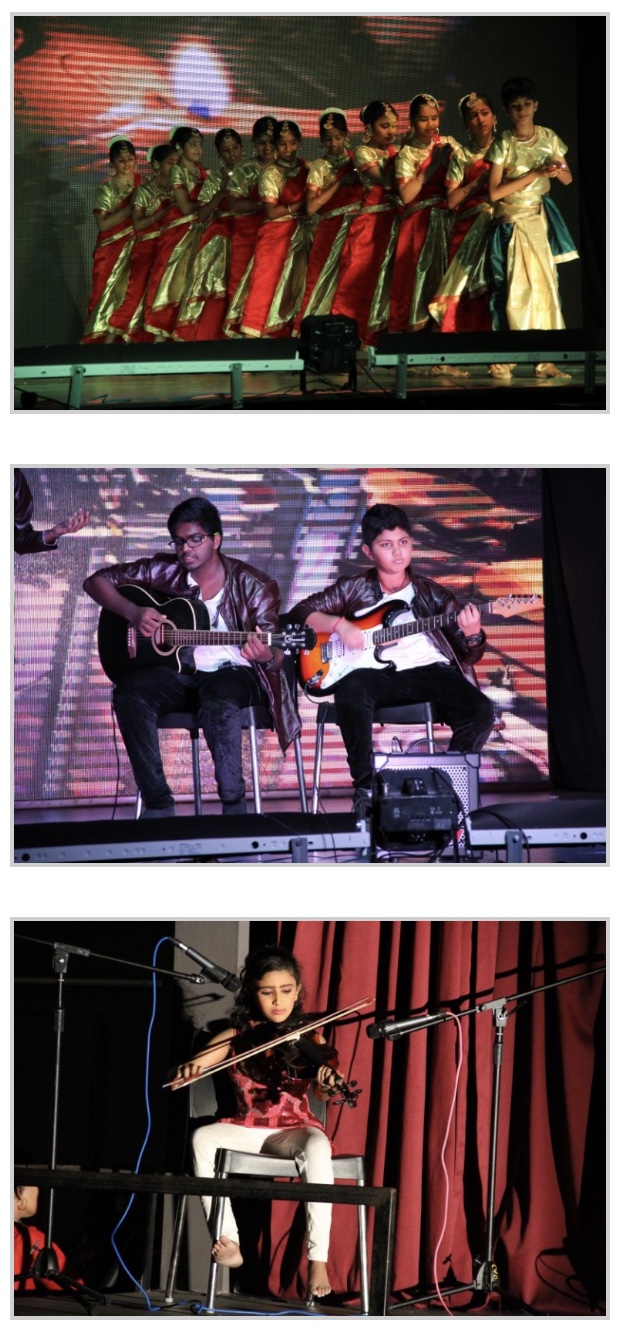
Physical Education / Sports
The syllabus provides learners with an opportunity to study both the practical and theoretical aspects of physical education. It is designed to encourage enjoyment in physical activity by providing learners with an opportunity to take part in a range of physical activities and develop an understanding of effective and safe physical performance. This helps learners to develop an appreciation of the necessity for sound understanding of the principles, practices and training that underpin improved performance, better health and well-being.
Students, through the knowledge they gain, develop an understanding of effective and safe physical performance. Students are encouraged to improve the following abilities:
- Their ability to plan, perform, analyse and improve, and evaluate physical activities;
- Their knowledge, skills and understanding of a range of relevant physical activities.
- An ability to analyse and improve their own and others’ performance.
The aim of the physical education is to further develop knowledge and understanding of the factors affecting performance; the health and safety aspects of physical activity, including the advantages and risks associated with a range of training strategies and technique. It also makes students reflect on the reasons for participating in physical activity.
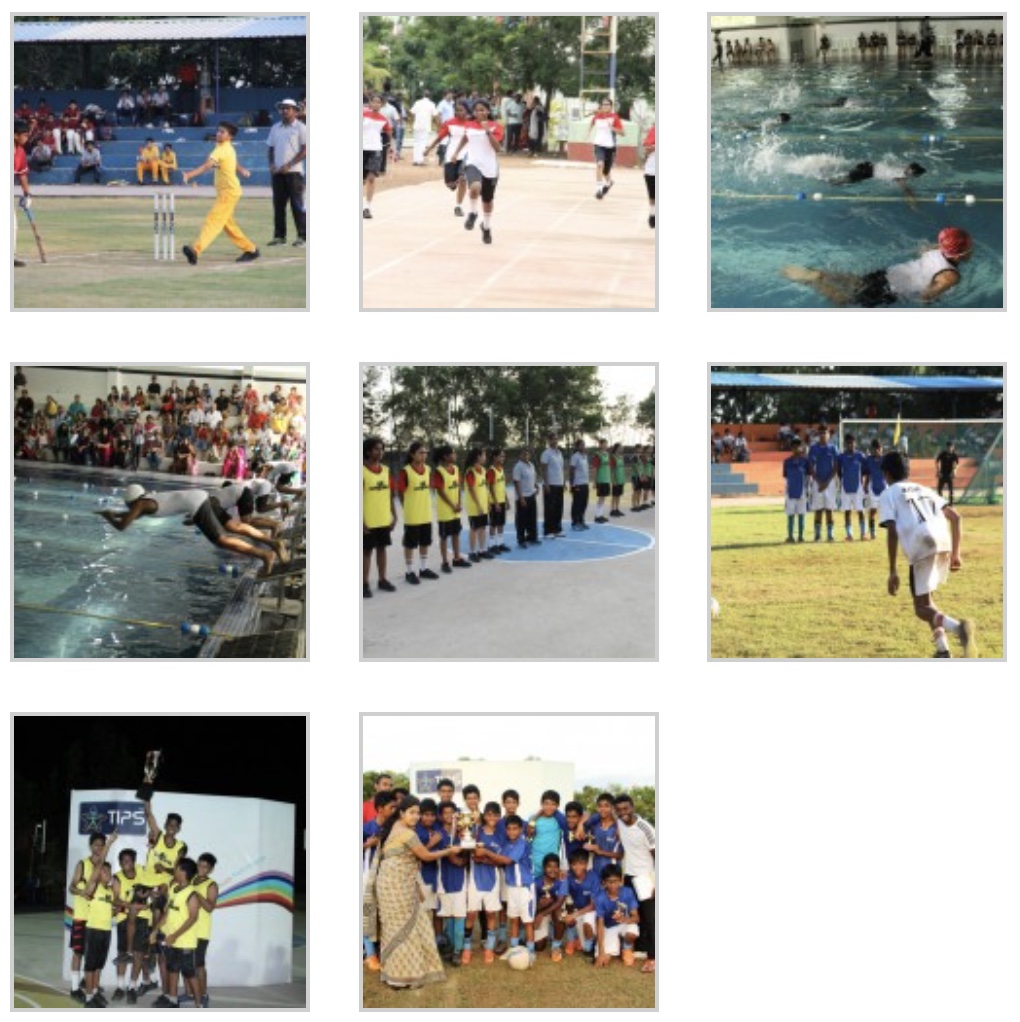
Real Life Exposure
To provide students with the real life exposure, we engage them in various relevant and challenging activities which not only engage them but sharpen their understanding of the world. Following are some of the activities mentioned.
ROBOTICS
Robotics is a multi-disciplinary field, which combines mechanical, and electronics engineering, computers, math and science and a part of STEM. Students will discover breakthrough technologies in Robotics. It will immerse them in the most forward-looking discipline of our time. The structure and content of the program is as follows:
- Projects based on DC motor, Vibration motor, Temperature sensor
- Introduction to SNAP/ SCRATCH software/ Visual programme
- Projects based on SNAP/ SCRATCH software/ Visual programme using CR kit
Debate
Debates are a great tool for engaging students and livening up classroom curriculum. Using debates in the classroom can help students grasp essential critical thinking and presentation skills. Among the skills classroom debates can foster are abstract thinking, clarity, organization, persuasion, public speaking, research, and teamwork and cooperation. Debate gives students an opportunity to present their views and also helps them learn to become tolerant to views that might oppose theirs. It is a great strategy to promote peer learning.
MUN
Students take part in the Model United nation as a delegate and debate with other nations’ representatives about the various significant national and international issues. This prepares them to be unbiased and well informed leader of tomorrow and understand the global issues and their implications today!
Field Trip
A Field trip is a visit to a place outside the regular classroom which is designed to achieve certain objectives, which cannot be achieved as well by using other, means Facilitate the learning of abstract concepts. Taking students on a field trip makes learning more effective as they will be able to gain vast ideas on the topic. Motivate students through increased interest and curiosity. Field trips can add variety to the regular classroom instructional program and they tend to be special and enjoyable learning experiences. Field trips make students aware of learning activities in everyday life. It enhances the curriculum. Give students experiential learning experiences.
Film, Movie and Video
Movies and videos can play a valuable role in the education process and can be an important aspect of a teacher’s strategy in providing lesson material to students. In the middle years students also make their own meaningful videos and short films to showcase their understanding of this media of learning and instruction.
Student Exchange Programs
Our Grade 9th to 10th students are invited to be a part of other international learning communities to experience the world outside. They become a part of the other school programs and share learning practices and their views on the world. Every year students also invite other international school communities to be a part of their learning community and let them connect with their world. Mostly these exchange programs are organized on the request of the other international school students In India or abroad for the middle years’ students.
Cycling Expeditions
Students and teachers take part in the yearly cycling expeditions and challenge themselves. It is one of the mega events where all, students and faculties, enjoy the challenge and excel themselves. All our trips have support crew and backup vehicle so you can cycle at your own pace, while there are no yellow jersey awards at the end of the day. The cycling is through undulating country on sealed and unsealed roads for between 10 and 35km a day at a steady pace and is fully supported by a back up vehicle. This is the perfect means to explore remote villages a world away from the highways.
STEM
STEM is an acronym for Science, Technology, Engineering and Math education. We focus on these areas together not only because the skills and knowledge in each discipline are essential for student success, but also because these fields are deeply intertwined in the real world and in how students learn most effectively. STEM is an interdisciplinary and applied approach that is coupled with hands-on, problem-based learning. Students learn:
| Area | Activity |
| Simple Machines and Mechanism | Dragster |
| Renewable Energy | Solar Vehicle, Hand generator, Boat Pulley |
| Pneumatics | Robot Hand |
